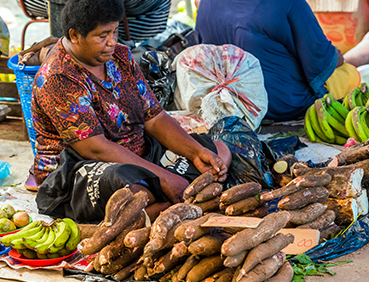The role of finance in gender equality
IDM Program attending OECD Gendernet Meeting in Paris
The IDM Program will be an observer at the annual meeting of the OECD Development Assistance Committee (DAC) Network on Gender Equality (GENDERNET) on 2-3 October.
GENDERNET is the space where gender policy leads in OECD member countries come together to update on initiatives, strategise and collaborate. While primarily an intergovernmental meeting, representatives from civil society, multilateral organisations, philanthropic foundations and the private sector attend as observers, present as knowledge holders in the formal program, and contribute to discussions from the floor.
Participants will have opportunity to update each other on recent and planned initiatives. The IDM Program will foreshadow the Measure What Matters Conference in 2020, the culmination of four years’ work to ready the IDM for global use. The GENDERNET meeting also provides an opportunity for exchange on approaches to key international meetings and processes. On the agenda is the upcoming global review of progress on the Beijing Declaration and Platform for Action (Beijing +25); the 25 anniversary of the ground-breaking International Conference on Population and Development and its Programme of Action; and the 20th anniversary of the landmark UN Security Council Resolution 1325 on Women, Peace and Security. The action and collaboration required to end sexual exploitation, violence, abuse and harassment against women and girls are central topics of the meeting and dialogue in tracking toward global goals.
Also under discussion is improving financing for gender equality and women’s empowerment. While commitments to transform gender inequality are ubiquitous, they are not matched by a level of resourcing that reflects the scale of change required. This financing gap contributes to the persistence of gender inequality. The 2030 Agenda for Sustainable Development includes a commitment to “work for a significant increase in investments to close the gender gap.” Currently, only around 4% of total Official Development Assistance (ODA) is focused on gender equality. Some 63% of ODA is gender-blind – ie, it does not consider gender at all.
The GENDERNET meeting will discuss ways to Increase financing to address deeply entrenched and persistent gender inequality, including how the private sector and philanthropy can better contribute to realizing gender inequality and women’s rights. Individuals, families, communities and economies all pay a price for continued gender inequality. The World Bank estimates the potential loss in global wealth stemming from gender inequality in earnings at USD 160.2 trillion (World Bank Group, 2018). It’s estimated that half of the growth in OECD countries between 1960-2010 was due to increased educational attainment, especially among women (Barro, 2010).
Gender equality is central to achieving the Sustainable Development Goals. The 2017 review of SDG5 by the High Level Political Forum found that significantly increased investment is needed to close the resource gaps for this goal, including through the mobilization of financial resources from all sources. Progress on the Sustainable Development Goals also requires more and better data, to bring into sharper focus who is poor and in what ways.
The IDM Program will make the connection to the individual-level, gender-sensitive multidimensional data that is produced by the IDM survey and highlight how gender-responsive policy from all development funders—bilateral donors, multilateral organisations, philanthropy and private sector—is, to a great extent, dependent on gender-sensitive data. Mobilising resourcing and action for more and better gender data is a key priority if we are to realise gender equality and women’s rights.
—


Comments